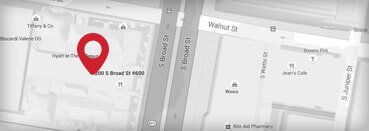Amputation Risk Associated with Invokana Reported by FDA
In July 2017, an FDA-mandated cardiovascular outcomes trial (CANVAS) reported that Invokana use roughly doubles the risk of lower limb amputation (although lowering the risk of serious cardiovascular events). The findings of amputation risk prompted the FDA to order a black box warning for the drug. The data from CANVAS does not indicate why amputations are being seen years after the trials leading to the FDA’s original approval of Invokana to lower glucose.
Invokana is Johnson & Johnson’s brand name for canagliflozin, a type 2 diabetes drug approved by the FDA in March 2013. Invokana and other SGLT2 inhibitors lower blood sugar by causing the kidneys to excrete glucose through the patients’ urine, reducing the amount of glucose in the patients’ blood. However, the patients’ kidneys have been found to also excrete crucial blood components, allegedly leading to severe complications and side effects.
Invokana’s Potential Side Effects and Risks
Prior to the finding of an increased amputation risks, studies had already linked Invokana and other SGLT2 inhibitors to dangerous side-effects, such as ketoacidosis, kidney damage, and increased risk of bone fracture. In 2015, the FDA issued warnings about the increased the risk of ketoacidosis and other adverse effects. Additionally, a 2016 study published in the Journal of American Medical Association found SGLT2 inhibitors potentially increase the risk of kidney damage in patients taking those medications.
Ketoacidosis is a serious condition in which the body produces high levels of blood acids called ketones. Symptoms of ketoacidosis include nausea, vomiting, abdominal pain, tiredness, and trouble breathing. Ketoacidosis can lead to serious permanent injuries. Injuries from Invokana use can also allegedly include kidney damage and increased risk of bone fracture.
Invokana Lawsuits Consolidated in MDL
In December 2016, the U.S. Judicial Panel on Multidistrict Litigation ordered Invokana cases consolidated into a Multi-District Litigation in the United States District Court, District of New Jersey (MDL 2750). The cases essentially claim that Johnson & Johnson’s subsidiary company, Janssen Pharmaceuticals, failed to conduct proper pre-market safety testing. The cases further claim that the company knew about – and failed to warn patients and doctors – of potentially severe medical complications and side effects associated with taking Invokana and other SGLT2 inhibitors.
What Should Invokana Patients Do?
If you or a loved one has taken Invokana and believe an injury was caused as a result, it is recommended that you speak with your physician.
Stark & Stark is committed to holding drug and medical device manufacturers liable when their products endanger the public. Our Invokana lawyers are experienced in mass torts MDL litigation cases and in negotiating with medical device and pharmaceutical settlement representatives. The Invokana and SGLT2 attorneys at Stark & Stark are actively pursuing Invokana settlements and filing Invokana lawsuits against manufacturers on behalf of patients injured or killed from use of these potentially harmful drugs. If you or a member of your family has suffered an injury from Invokana or other SGLT2 use, you may be entitled to compensation under the MDL litigation process or via settlement.
Please contact Stark & Stark to speak with one of the Invokana and SGLT2 attorneys, free of charge, who can help assess any claims that you may have and to help you understand the Invokana settlement and lawsuit process.








